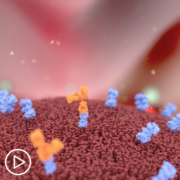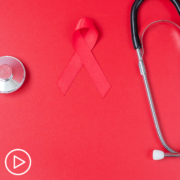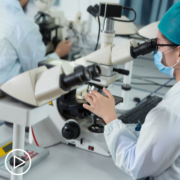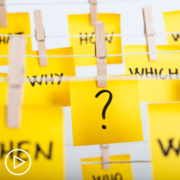What Is the Role of Bispecific Antibody Therapy in the Future of Myeloma Care?
What Is the Role of Bispecific Antibody Therapy in the Future of Myeloma Care? from Patient Empowerment Network on Vimeo.
From the 2023 American Society of Hematology (ASH) annual meeting in San Diego, Dr. Peter Forsberg discusses how new data and learnings around bispecific antibodies may allow this newer myeloma therapy to be used more broadly in the clinical setting.
Dr. Peter Forsberg is associate professor of medicine at the University of Colorado School of Medicine and is a specialist in multiple myeloma. More about Dr. Forsberg.
Related Resources:

Dr. Peter Forsberg | Myeloma Research News From the 2023 ASH Annual Meeting |
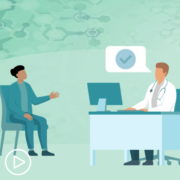
|
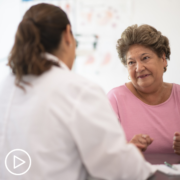
What Myeloma Patients Need to Know About Bispecific Antibodies |
Transcript:
Dr. Peter Forsberg:
The role of bispecific antibodies is one that’s evolving quickly. We’ve had new therapies approved over the past 12 months. We may get more approvals in the future. And we’re certainly going to get increasing data around using those treatments in our clinics outside of the controlled clinical trial setting as well as maybe information around more diverse utilization in different treatment settings.
So, I think these are going to be medicines that are used much more broadly in the future than they are now. Right now, they have a really impactful role in a certain group of patients.
I think that’s going to become something that’s broader in the future. And I really do think there’s something that’s going to help us to improve on already a really good group of options in earlier relapsed settings and maybe even upfront treatment of myeloma in the future.
So, a lot to be figured out, a lot of refinement in the future about how and when to use these treatments. But it’s very clear that they’re going to have a huge impact in different settings.

